Attention: Restrictions on use of AUA, AUAER, and UCF content in third party applications, including artificial intelligence technologies, such as large language models and generative AI.
You are prohibited from using or uploading content you accessed through this website into external applications, bots, software, or websites, including those using artificial intelligence technologies and infrastructure, including deep learning, machine learning and large language models and generative AI.
2017 Data Grants Recipients
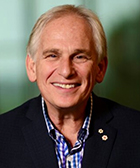
S. Larry Goldenberg, CM, OBC, MD, FRCSS, FACS, FACAHS
Director of Development and Supportive Care, Vancouver Prostate Center Professor, Department of Urologic Sciences, University of British Columbia, Canada
Project Title: Health Outcomes of Men on Testosterone Replacement Therapy (TRT)
Dr. Goldenberg will analyze health outcomes of men on Testosterone Replacement Therapy (TRT). This project was formed after a surge in off-label TRT prescriptions resulted in several highly debated consequences. Dr. Goldenberg aims to determine appropriate prescribing and monitoring patterns of men on TRT, the biochemical impact of TRT treatment on the actual measured testosterone level, as well as safety concerns surrounding TRT and cardiovascular and thromboembolic events.
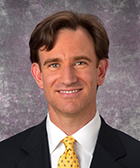
Bruce L. Jacobs, MD, MPH
Assistant Professor of Urology, University of Pittsburgh
Project Title: The Comparative Effectivness of Neoadjuvant and Aduvant Chemotherapy in Bladder Cancer Patients Undergoing Cystectomy
Dr. Jacobs' study aims to understand the comparative effectiveness and outcomes of cystectomy patients treated with neoadjuvant and adjuvant chemotherapy. He will assess the use of these therapies at the population level, as well as examine the survival rates associated with these two treatments.
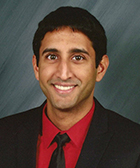
Hiten Patel, MD
Resident, Brady Urological Institute, Johns Hopkins School of Medicine
Project Title: Costs and Trends of Ambulatory Urological Surgery in the United States
Dr. Justin Ziemba and Dr. Patel will study the costs and procedural trends of ambulatory urological surgery in the United States. The project will review state databases of ambulatory surgery and outpatient urologic procedures to identify variations in procedure type, number and cost. The study will assess the influence of nonhospital-owned ambulatory surgery centers to gain a better understanding of how care is delivered, as well as identify areas of potential over-utilization relative to known measures of disease burden. Through this study, Dr. Ziemba and Dr. Patel aim to further quantify costs, outcomes and care delivery mechanisms at the provider, hospital, and population level.
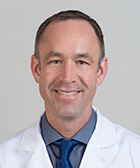
Jeremy B. Shelton, MD, MSHS
Assistant Professor, Department of Urology, University of California
Project Title: Optimizing the use of a Specialty Specific Clinical Registry to Improve Quality of Care
Dr. Shelton will examine the trend in adoption of the AUA Quality (AQUA) Registry since its inception in 2014 and compare and contrast the characteristics of participant and non-participant groups. Among participating groups, he will evaluate how the AQUA Registry is being utilized, and work with practices to design a pilot implementation trial to explore ways of optimizing this new resource for quality improvement.
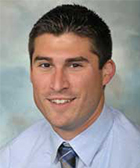
Justin Ziemba, MD
Instructor of Urology, Brady Urological Institute, Johns Hopkins School of Medicine
Project Title: Costs and Trends of Ambulatory Urological Surgery in the United States
Dr. Ziemba and Dr. Hiten Patel will study the costs and procedural trends of ambulatory urological surgery in the United States. The project will review state databases of ambulatory surgery and outpatient urologic procedures to identify variations in procedure type, number and cost. The study will assess the influence of nonhospital-owned ambulatory surgery centers to gain a better understanding of how care is delivered, as well as identify areas of potential over-utilization relative to known measures of disease burden. Through this study, Dr. Ziemba and Dr. Patel aim to further quantify costs, outcomes and care delivery mechanisms at the provider, hospital, and population level.
